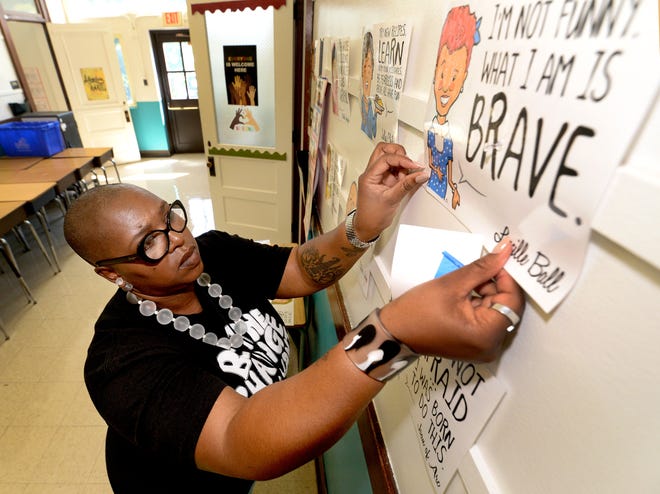Illinois students who returned home from spring break are now in the final stretch of the 2023-2024 school year. But the upcoming school year could look very different as the state Legislature considers new legislation and budget funding requests from Gov. J.B. Pritzker.
Education is expected to be a major focus again as lawmakers prepare next year's budget, which begins in July. For the Illinois State Board of Education, Pritzker is asking for $10.9 billion in state funds, most of which would go toward evidence-based funding for public schools.
more:Real or fake?Illinois students learn about the dangers of social media ahead of election
This year also marks the second year of the Smart Start Illinois Initiative, the governor's signature program that aims to provide universal preschool education by 2027. This year, Pritzker is asking for $400 million for Smart Start and $13 million to create a new state early childhood agency.
Along with the budget, several education bills are being considered in committee. Here are five bills you should know about that could impact your classroom.

electric school bus
The way students commute to school is likely to change in the coming years.
House Bill 2287, sponsored by Rep. Marty Moylan, D-Des Plaines, would require all newly purchased and leased school buses to be electric starting in 2028. By 2035, all school districts will be required to have only electric school buses.
The state aims to have 1 million EVs on the road by 2030, but it is not on pace to reach that goal. According to data from the Illinois Secretary of State's Office, there were just under 98,000 EVs in the state as of March 2024, many of them in Cook County and surrounding counties.
People who buy EVs can receive up to $4,000 in rebates from the state. Similarly, the new law provides grants of up to $200,000 for the purchase or lease of electric school buses.
Teacher planning period
Sen. Meg Laurent Capel, D-Shorewood, introduced Senate Bill 2721 as a way to support teachers during the school day. The bill would require teachers to spend at least 45 minutes during class planning. The bill provides that during the planning period, educators cannot be forced to substitute or be forced to attend meetings or training sessions. If passed, the bill would be mandatory in all public school districts in the state.
The bill has gotten the attention of the Springfield School District, and Rochester School District Superintendent Dan Cox has also expressed concern about the pending bill.
“The nuance of this bill as it currently stands is that it could have a disproportionate or negative impact on students' instructional time,” Professor Cox said in a recent interview. “This bill could have a significant impact even on small school districts without staff.”

corporal punishment
Illinois has banned corporal punishment in public schools since 1994. The same policy does not apply to private schools, but new legislation could change this.
House Bill 4175 would prohibit non-public schools from slapping or paddling students into physically painful positions or intentionally causing physical harm to students. It is.
The bill was introduced by Rep. Margaret Croke (D-Chicago) and passed unanimously in a House committee. It now awaits a full vote in the House of Representatives before moving on to the Senate.
If the bill passes, Illinois would become the fifth state in the nation to ban corporal punishment in private schools, joining New York, New Jersey, Maryland and Iowa.
Intentional breaks for students
In recent years, it has been reported that more students are experiencing high levels of stress and anxiety at school. This bill aims to reduce these stress levels and help children stay focused during class.
Senate Bill 2872, filed by Sen. Rachel Ventura, D-Joliet, would require each school district to provide at least 20 minutes of relaxation time or relaxation activities per week. This time is used to emphasize self-care and downtime as a way to improve your overall health.
The bill would also encourage schools to offer a variety of practices, including yoga, meditation, mental health education, and mindfulness practices.
new curriculum
What is taught in classrooms is likely to change in the coming years.
Several bills have been introduced in the House Elementary and Secondary Education: School Curriculum and Policy Committee that would require the teaching of one-semester courses on Arab American history, the effects of climate change, and personal finance.
Contact Hope Gadson: hgadson@gannett.com; contact Patrick M. Keck: 312-549-9340, pkeck@gannett.com, twitter.com/@pkeckreporter.


